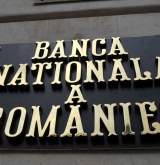Over the past few years, delistings from the Bucharest Stock Market of companies such as Dacia Pitesti, , Terapia Cluj Napoca, Arctic Gaesti, Sidex Galati and more recently Policolor have narrowed traders’ options to diversify investments, given the low flow of IPOs in terms of quantity and quality.
There is variety of underlying reasons for a delisting from the stock market, but all have one thing in common: majority shareholder.
Therefore, if he wishes to stop disclosing financial results to regulatory bodies, or not to be compelled from meeting the minority shareholder requirements or to clear the way for inside operations (partitioning, capital raise/reduction), processes burdened if the company is listed, the first thing he would do is to deregister stocks,” said Silviu Enache (photo) manager of KD Capital Management.
On the other hand, a lower free-float would be a good reason to go private.
“The lack of required liquidity makes the shares of a company unattractive, enough to turn the odds of benefiting of the advantages arising from listed company statute to minimal. In default of access to funding, of a positive image, notoriety in the economic landscape, the costs of trading stocks on the market can be unsustainable and thus companies can choose to deregister them instead.
Another reason is the majority shareholder’s intention to acquire as many stocks from the market as possible before running massive investment programs (such as Dacia or Automobile Craiova), said Brendea.
Advantages and disadvantages of delisting
At a first glance, delistings seem to bring a round of disadvantages for the equity market, especially if the first effect is the reduction of number of active issuers.
“The main reason is the narrow size of deals in the local market. At least at a first glance. Instead, if we consider the total number of issuers, we can say we have a record number of companies listed at the stock market. The disadvantage: if we look at the number of trades per issuer we find the lowest figures in Europe”, said Adi Lupsan, deputy director at Intercapital Invest.
Under these conditions, delisting can be seen as an effective solution as it washes out the market from companies with low liquidity.
“I would rather prefer the variant of larger tradable volume and fewer issuers than what we see now”, Lupsan continued.
On the other hand, another advantage consists in the fact that the shareholder who initiates the offer is compelled to meet regulations in force that is to offer a price as close as possible to the real value of the company.
This way, he will be one of those investors who see the bright side of going private in Romanian capital market.
The possibility of running more flexible operations inside the company and of not being compelled to meet the minority shareholder regulations are some of the main advantages of deregistering stocks, as Silviu Enache commented.
“As the market has fallen sharply over the last two years, many companies say the capitalization that the stock market reflects is not relevant, and delisting could easily remove this drawback”, said Alin Brendea.
The main disadvantage is that the company could no longer get the financing through stocks market (a fast and cheap solution).
“In addition, the company will become less attractive to minority shareholders. Shareholder will no longer have the possibility to exit under favorable conditions by selling their equity position on the stock exchange”, director of Prime Transaction added.
Citeste si:
Calculator Salariu: Află câți bani primești în mână în funcție de salariul brut »
Te-ar putea interesa și:


















































































![HR [PLAY] Tech Workout - 11...](https://www.wall-street.ro/image_thumbs/thumbs/973/x973fe0a3888d417feff63de42e814180-260x260-00-65.jpg,qv=1714126130.pagespeed.ic.8JsqLrmwPf.jpg)









